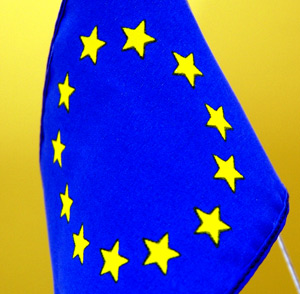
Court decision puts Norway on the hook for massive CO₂ Storage build-out
A ruling by the European Free Trade Association Court that Norway’s continental shelf falls under the European Economic Area Agreement could dramatic...
News

Publish date: October 12, 2005
Written by: Gunnar Grini
News
In the recent greenpaper on energy efficiency, the European Commission put forth a goal for reducing and stabilising the energy demand in Europe to 1990-levels by 2020. Bellona suggests the implementation of two new political measures on Community level in its own submission to the World Sustainable Days conference.
The conference is a yearly event and will take place on March 1st to the 3rd in Wels, Austria. In its submission, Bellona argues that the implementation of white certificates and a zero emission programme for energy efficient technology are two highly necessary compliments to the Kyoto protocol in order to reduce societys dependence on fossil energy sources and the emissions of greenhouse gases.
White certificates
White certificates are a market-based measure that can be used to ensure that certain goals for reducing energy demand are obtained through the most cost-effective solutions available. In short, such a scheme can be explained as a system where producers, suppliers or distributors of electricity, gas and oil are required to undertake energy efficiency measures for the final user that are consistent with a pre-defined percentage of their annual energy deliverance.
Independent certifying bodies confirming the claims of market actors for savings of energy will issue the certificates. A market can then be established where the demand and offer for white certificates balances out.
The Council of the European Union have decided on an indicative target for yearly energy savings of one percent in the political agreement for a directive on energy end-use efficiency and energy services. Traditional energy taxes are not usually linked to a savings target, but are set according to fiscal requirements. The mandatory target of yearly energy reductions that must be fulfilled within a scheme for white certificates keeps the certainty of results, while the certificates trading gives the flexibility for cost-efficient compliance. This means that the market forces determine the allocation of activities, but not the scale of action.
Zero Emission programme for energy efficient products
In 1990, California embarked on a plan to reduce vehicle emissions to zero though the introduction of the Zero Emission Vehicle (ZEV) programme. The Air Resource Board required that in 1998, two percent of the vehicles produced for sale in California had to be electrical or hydrogen fuel cell vehicles with zero tailpipe emissions.
The demand would increase to five percent in 2001 and ten percent in 2003. Implementing a similar scheme for energy efficient technology on a Community level would imply that industry in the Member States of the European Union are levied a certain yearly increase in low-emission and energy efficient technology, such as passive housing with an energy demand below 15 kWh/m2, electrical cars and the like. A zero emission programme for energy efficiency technology would provide obligations to the industry to provide the radical technology changes necessary for reducing the release of greenhouse gases to a sustainable level.

A ruling by the European Free Trade Association Court that Norway’s continental shelf falls under the European Economic Area Agreement could dramatic...

Bellona held a seminar on countering Russian disinformation in the Arctic at the Arctic Frontiers international conference in Norway

Our December Nuclear Digest, reported by Bellona’s Environmental Transparency Center, is out now. Here’s a quick taste of three nuclear issues arisin...

Bellona has launched the Oslofjord Kelp Park, a pilot kelp cultivation facility outside Slemmestad, about 30 kilometers southwest of Oslo, aimed at r...